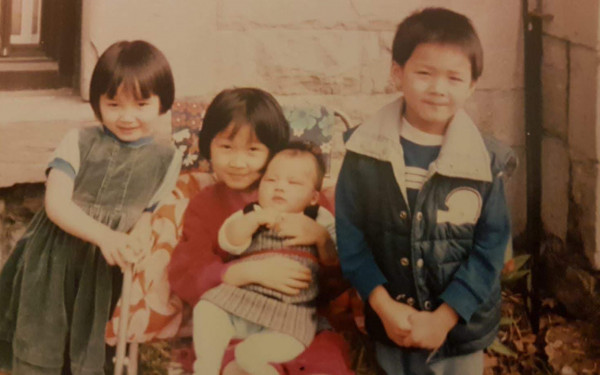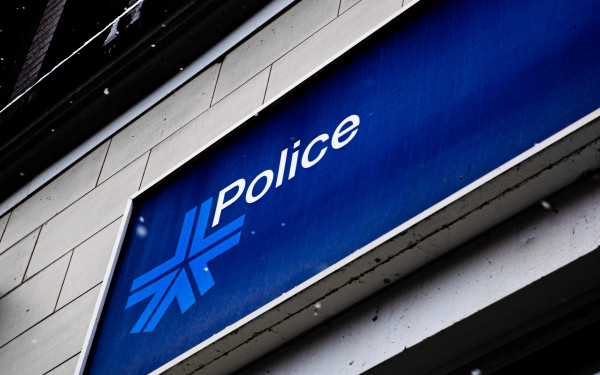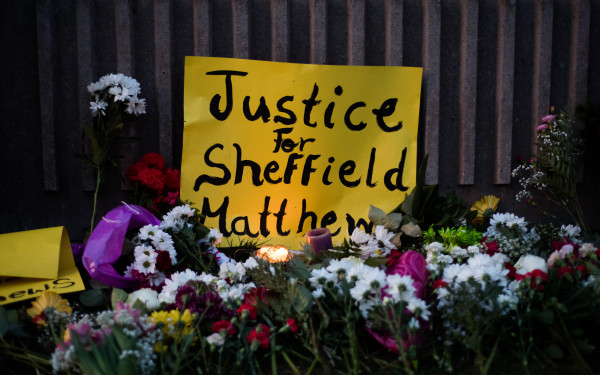Remembering Victims of Police Violence
Fourth Annual Vigil Calls for Civilian Inquiries and Better Training
Family and friends of victims of police violence met at the steps of the Montreal police union’s building on Oct. 22 to light candles for those who died at the hands of law enforcement.
For the fourth consecutive year, the Justice for the Victims of Police Killings Coalition, which organized the vigil, called for independent civilian inquiries into police killings and better handling of emergency situations involving the mentally ill.
Last year, Montreal police shot and killed two people while making arrests, according to the Service de police de la Ville de Montréal’s annual report.
Organizers of the vigil say over 60 people have been killed in Montreal by police since 1987, including 11 in the past five years.
Video Brandon Johnston
Gladys Tolley
Bridget Tolley said she is still searching for answers after her mother, Gladys, was struck and killed by a Sureté du Québec squad car in the Kitigan Zibi Reserve, near Maniwaki, in 2001. An internal investigation cleared the officer at the wheel of the car that killed her mother, Tolley added.
After her mother’s death, she started Sisters in Spirit, an initiative of the Native Women’s Association of Canada that raises awareness about violence against Aboriginal women.
In spite of having held a candlelight vigil at the foot of the Police Brotherhood union building every October for four years, she thinks little has changed.
“When the government doesn’t want to acknowledge the mistakes and fix them, we’re not going to get anywhere,” she said, holding a framed black-and-white picture of her mother.
“I’m not here to put anybody in jail or blame anybody. I just want to fix what’s wrong, because if we don’t we’re not going to be able to move forward and it’s going to keep happening to other families.”
Ben Matson
“Every time I think about the way my father died I shake my head. It was so stupid. Basically, it’s because some guy didn’t like the way my dad parked,” said Julie Matson.
Her father, Ben, was killed in an altercation with Vancouver police in May 2012 after allegedly arguing with an off-duty RCMP officer about the way he had parked his Harley Davidson. Matson’s motorcycle was blocking the officer’s car.
Julie Matson said the police cornered her father in an alley and asphyxiated him by holding him in a prone position too long. She initiated a public inquiry into his death, but the officers involved were not charged.
“That’s the problem, [police brutality] is so systemic. It’s an uphill battle because it’s a giant brotherhood that keeps protecting [itself] at every single step,” she said, holding a candle in one hand and a photo of her dad in the other.
“2012 is the year of police brutality in this city,” she continued. “I feel it’s a lot scarier. The cops are so eager to immediately start with crazy violence instead of other forms of intervention.”
Didier Berry
“You held a minute of silence for the victims of police violence. Now make 30 seconds of noise for the survivors,” Didier Berry told the crowd assembled outside the Police Brotherhood, to loud cheers and applause.
Almost exactly a year ago, Berry said he was attacked by police at the intersection of de Maisonneuve Blvd. and Amherst St.
“I was trying to film an arrest that I thought was unfair, at a distance. The police came by after […] They never told me what I did wrong or notified me of my rights. They beat, insulted and choked me—until I lost consciousness.”
Berry said the police are suing him for assault and battery as well as obstructing justice.
In April, Berry filed a civil suit against the SPVM and the officers involved.
“Maybe we’ve got a few years to go, but we’ve got the motivation and the people [to end police violence],” Berry said.
“I’m very optimistic. Everybody wants justice. The police have a lot on their conscience, so hopefully some will come out and tell the truth about what’s happening.”

_900_600_90.jpg)


_600_375_90_s_c1.jpg)


